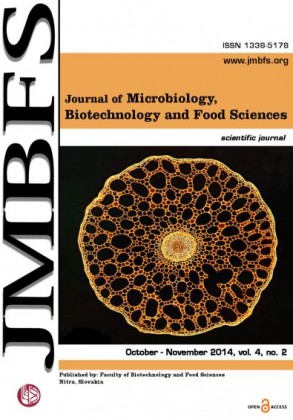NUTRITIONAL STRESS IN WESTERN HOOLOCK GIBBON DUE TO ADVERSE CHANGES IN DIET PATTERN
DOI:
https://doi.org/10.15414/jmbfs.2014.4.2.152-156Keywords:
Western hoolock gibbon, endangered, nutritional stress, low population density, immune dysfunction, parasiteAbstract
Habitat destruction and hunting are one of the major threats to endangered western hoolock gibbon (Hoolock hoolock) in India. Due to large scale deforestation, important feeding and roosting tress are destroyed thereby creating shortage of food all-round the year. In non-availability of preferred food, these gibbons are bound to switch their diet and eat a diet of less nutritive value. This unwanted diet-switch may lead to severe nutritional stress leading to low population densities, reduced litter and a breach in their nutritional threshold may also cause sudden die-off. Acute food supply may cause deficiency of total energy and protein supply in primates which may ultimately lead to a variety of severe immune dysfunctions and an impaired resilience. It is being well known that degraded habitat leads to increase of parasite among primates, which leads to the decimation of the weak and the vulnerable. Weak immune system due to improper diet and nutrition may lead to parasite colonization, growth and fecundity.Downloads
Download data is not yet available.
Downloads
Published
2014-10-01
How to Cite
Deb, M., Choudhury, S., Sharma, I., C. Bhattacharjee, P., Formicki, G., Bulla, J., & Roychoudhury, S. (2014). NUTRITIONAL STRESS IN WESTERN HOOLOCK GIBBON DUE TO ADVERSE CHANGES IN DIET PATTERN. Journal of Microbiology, Biotechnology and Food Sciences, 4(2), 152–156. https://doi.org/10.15414/jmbfs.2014.4.2.152-156
Issue
Section
Biotechnology
License
Copyright (c) 2014 Mitrajit Deb, Sudip Choudhury, Indu Sharma, Parimal C. Bhattacharjee, Grzesiek Formicki, Jozef Bulla, Shubhadeep Roychoudhury

This work is licensed under a Creative Commons Attribution 4.0 International License.
All papers published in the Journal of Microbiology, Biotechnology and Food Sciences are published under a CC-BY licence (CC-BY 4.0). Published materials can be shared (copy and redistribute the material in any medium or format) and adapted (remix, transform, and build upon the material for any purpose, even commercially) with specifying the author(s).





